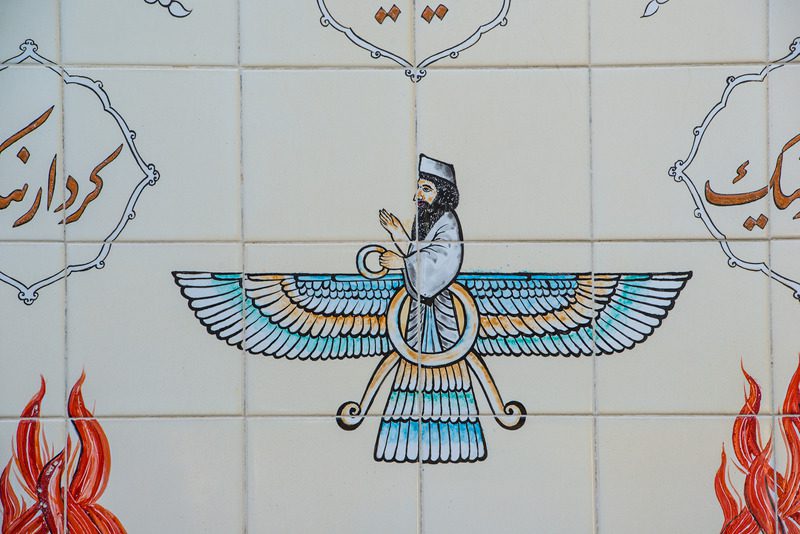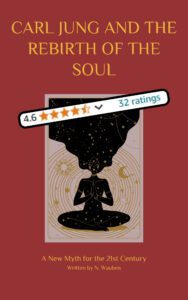Table of Contents
Introduction
Thus Spoke Zarathustra is one of the most interesting books ever written. If you have never read Nietzsche before, Thus Spoke Zarathustra is a great place to start. Most of Nietzsche’s major ideas are discussed in Thus Spoke Zarathustra, such as the eternal recurrence, the death of God, and slightly less familiar, Nietzsche also warned us about the tarantulas, which we will discuss in this post.
The books’ main story line is relatively easy to follow which makes it slightly easier to read, Nietzsche’s ideas, however, might be more difficult to understand, and it has taken me a long while to finally understand them, if only to a small degree. In Thus Spoke Zarathustra we follow the adventures of Zarathustra, a character loosely inspired by the ancient prophet Zoroaster. Through the character of Zarathustra Nietzsche introduces some of his most important ideas to the reader. You can find the version of Thus Spoke Zarathustra which I have used for this article here: Thus Spoke Zarathustra
About this Series
In this series I attempt to make an in-depth analysis of Thus Spoke Zarathustra written by Friedrich Nietzsche. I believe that Nietzsche is one of the most misinterpreted and misunderstood authors to have ever existed. This is a shame because, in my opinion, he was also one of the most original thinkers of his time, and many of his ideas are still relevant today.
Good and Evil
Before discussing the tarantulas, we must look at what Nietzsche defined as good and evil, or rather, how Nietzsche thought we should not define good and evil. According to Nietzsche good and evil or morality in general are socially constructed; they are not an inherent part of this world or of our species.
In his book The Twilight of the Idols Nietzsche argued that: “Morality is only an interpretation of certain phenomena: or, more strictly speaking, a misinterpretation of them. Moral judgement, like the religious one, belongs to a stage of ignorance in which even the concept of reality, the distinction between real and imagined things, is still lacking.” (p.37) This does not mean that we should disregard all that society deems to be good and evil, instead Nietzsche argued that every man should define their own values of good and evil: “That ye might become weary of saying: ‘that an action is good is because it is unselfish’ Ah! My friends! That your very Self be in your action, as the mother is in the child: let that be your formula of virtue!” (Thus Spoke Zarathustra, p. 93)

Two Types of Morality
Nietzsche argued that the values we currently hold have been largely imposed upon us by Christianity. Nietzsche believed that there are two kinds of morality, a type of morality that is ‘natural’: “every sound morality is ruled by a life instinct”,( The Twilight of the Idols, p.26) and then there is a second type of morality which is the opposite, unnatural and at odds with the life instinct: “Conversely, the morality which is antagonistic to nature – that is to say, almost every morality that has been taught, honoured and preached hitherto, is directed precisely against the life-instincts – it is a condemnation, now secret, now blatant and impudent, of those very instincts.” (Ibid)
Nietzsche argued that, in the past, the physically weak and powerless used morality as a tool to gain power over the strong. Defining what is moral is in this sense a struggle for power. “In Psychological terms: in a fight with an animal, the only way of making it weak may be to make it sick. The Church understood this: it ruined man, it made him weak – but it laid claim to having ‘improved’ him.” (Ibid, p.38)
As you may have noticed from this paragraph Nietzsche was not a big fan of Christianity, in part because Nietzsche believed that Christianity imposed its ideas of good and evil upon humanity. According to Nietzsche this was not done out of love for mankind, but to exert dominance over mankind, thereby Christianity was considered by Nietzsche to be one of the biggest enemies of life: “Inasmuch as it says, ‘God sees into the heart of man,’ it says nay to the profoundest and most superior desires of life and takes God as the enemy of life. The saint in whom God is well pleased is the ideal eunuch. Life terminates where the ‘Kingdom of God’ begins.” (Ibid, p.27)
The Tarantulas
Although Nietzsche might not have had any problems with the Christian values themselves, he detested them because they were disguised as moral values, while they were secretly directed against the life-instincts, while also being used to impose power upon man. Therefore, whenever values are preached, be it by, for example, a religion or a part of society, Nietzsche argued that we should be careful, for there might be some hidden motives.
Now we can finally have a look at the role of the tarantulas in this discussion. Nietzsche called these moral preachers’ tarantulas. He argued that they did not preach these values out of love for mankind, but out revenge or jealousy. They used the term justice as a pretext to assert their dominance. In Thus Spoke Zarathustra Nietzsche wrote: “Thus do I speak unto you in parable, ye who make the soul giddy, ye preachers of equality! Tarantulas are ye unto me, and secretly revengeful ones!” (p.97)
Nietzsche wanted to expose these ‘tarantulas’ for whom they really are, he argued that they had a few tactics to increase their power: “’Vengeance will we use, and insult, against all who are not like us’ – thus do the tarantula-hearts pledge themselves. ‘And “Will to Equality” – that itself shall henceforth be the name of virtue; and against all that hath power will we raise and outcry!’” (ibid) Furthermore, according to Nietzsche, as soon as the tarantulas would become powerful, they would not hesitate to dismiss the values that they had until then preached: “And when they call themselves ‘the good and just’, forget not that for them to be Pharisees, nothing is lacking but – power!” (p.98)
Conclusions
Nietzsche believed that everyone is motivated by his ‘will to power’. According to Nietzsche humans want to expand their power as much as possible. The entity that can define what is good or bad is immensely powerful, because it will have a large influence on the actions of men. Nietzsche argued therefore that anyone preaching certain moral values might not be doing so out of genuine kindness but might be trying to expand his or her power.
I believe that Nietzsche’s arguments are still relevant today. A lot of countries, groups of people or even individuals are preaching for more justice or equality. Personally, I like to believe that most of them do so with positive intentions, however, I think we should still be careful, for there might be some tarantulas hiding among them. In Part 2 we will have a look at The Last Man and the Importance of Chaos.

